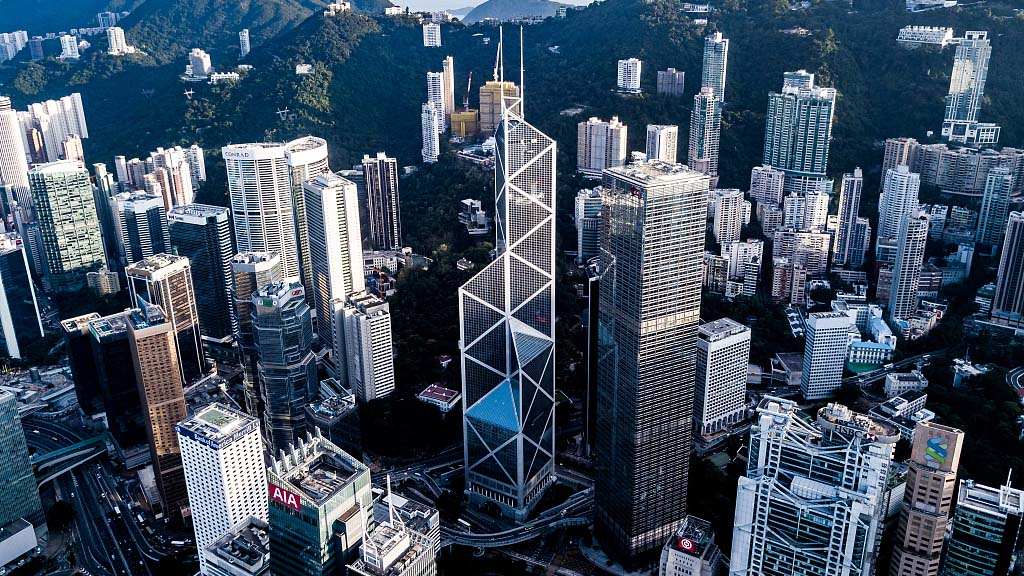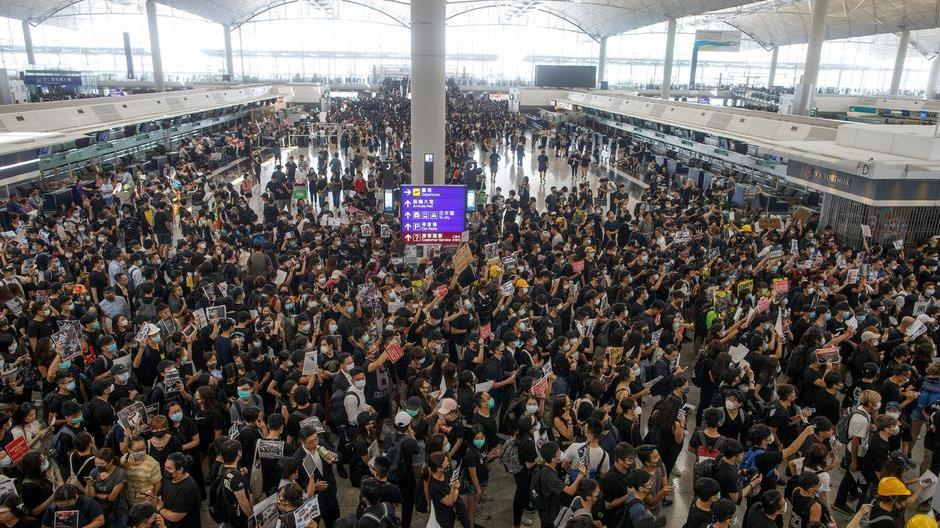

"These are not so-called protesters. They are being paid as pawns by political forces yet to be brought to justice. These are not pro-democracy protests," said Victor Gao, vice president of Center for China and Globalization in reference to the developments in Hong Kong.
Gao called on the world to see through the surface and see the realities on the ground in the region which has witnessed more than ten consecutive weeks of protests with no clear end in sight.
He went on to explain that some of these so-called protesters are reportedly being paid as mercenaries by forces yet to be fully disclosed. Each person is paid, he said, 2,500 Hong Kong Dollars (HKD) for individual acts or 2,000 HKD for specific other actions, or 1,500 HKD for some other operations, as well as 500 HKD for certain activities in the streets.
When Beijing condemns Hong Kong airport protesters for their behaviors as riots and "acts of terrorism," some in the West continue to call these violent demonstrations "pro-democracy protests." After U.S. President Donald Trump himself characterized the protests as "riots," he came under mounting criticism from Congress.

Protesters rally at the departure hall of Hong Kong airport in Hong Kong Special Autonomous Region (HKSAR), China, August 12, 2019. /Reuters Photo
Gao acknowledges that Hong Kong residents have a legal right to protest and to demonstrate but must do so within the law. According to Part IV of HKSAR's Public Security Ordinance titled "Unlawful Assemblies, Riots and Similar Offences," unlawful assembly refers to situations where three or more persons, assembled together, conduct themselves in a disorderly, intimidating, insulting or provocative manner that might threaten a breach of peace."
The maximum penalty for the crime is imprisonment for five years on conviction on indictment, or to a fine at level 2 (5,000 HKD) and imprisonment for three years on summary conviction.
Witman Hung, a deputy from Hong Kong at the 13th National People’s Congress, said the recent incidents have been a real eye-opener. People in Hong Kong are used to a peaceful and respectable environment where most residents obey the rule of law.
According to official data, in 2018, Hong Kong's overall crime figure dropped to some 54,000 cases, a decrease of 3.2 percent from 2017, the lowest since 1974. The majority of the crime categories registered decreases.
However, an alarming stat shows the number of youths arrested for crimes was 2 769 in 2018, up by 1.4 percent over 2017. Most of them were arrested for wounding and serious assault, miscellaneous theft, and shop theft.
The Hong Kong police force faces allegations of police brutality, but Hung said he believed the police have been cautious. Sometimes, inevitably, they had to use force to overpower the things which are being harmful to the society, he said.
Hung points out that after the violence, authorities and residents in the region should reconsider what kind of society they want. He feels that people need to dig deeper into why there is dissatisfaction.
"When we talk about One Country, Two Systems, on the socialist side, things are clear since the Chinese Mainland has practiced socialism since 1949. But here in Hong Kong, when we talk about capitalism, exactly what kind of system and what kind of society do we want?" Hung has called on people to rethink Hong Kong’s future.
(If you want to contribute and have specific expertise, please contact us at opinions@cgtn.com.)

Copyright © 2018 CGTN. Beijing ICP prepared NO.16065310-3
Copyright © 2018 CGTN. Beijing ICP prepared NO.16065310-3